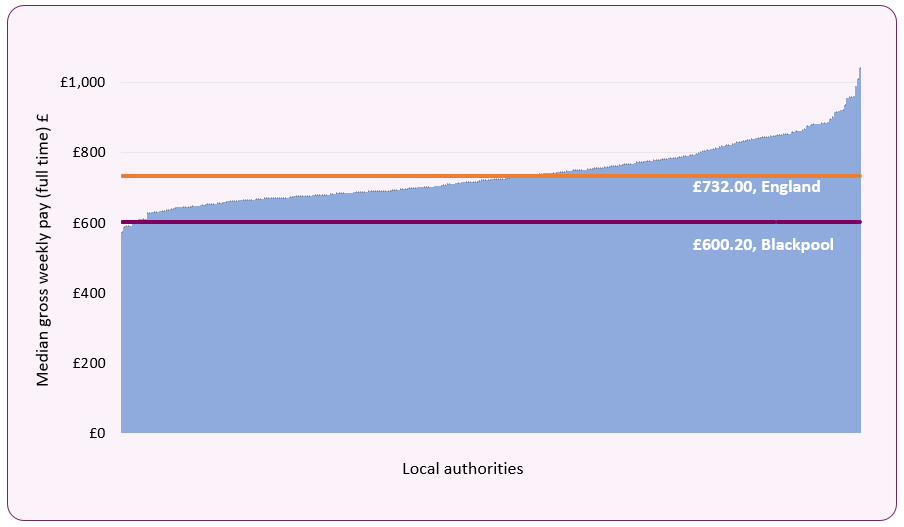Employee Earnings
Last Modified 24/02/2025 15:36:49
Share this page
Employee Earnings
Introduction
The Annual Survey of Hours and Earnings (ASHE), is the Office for National Statistics most detailed and comprehensive source of information on how much workers earn through employment and includes:
-
- Overall levels of earnings - for both full-time and part-time employees and for gender
- The make-up of total earnings - split between basic pay and other components like overtime
- The range of earnings - from lowest to highest earners
The headline earning figure reported is the median gross weekly pay for full-time employees. This is the middle income in an area with approximately half earning more and half earning less than the figure.
ASHE does not include earnings for the self-employed as it is based on a 1% sample of all registered employees in the United Kingdom.
Facts and figures
2024 position - resident analysis
For residents of Blackpool, working for any employer, the 2024 figures show:
- Median gross pay of full-time employees resident in Blackpool is £600.20 per week, compared to £732.00 for England
- For full-time male employees, median pay is £605.90 per week, whilst for females it is £575.30
- Blackpool residents in employment have the eighth lowest gross weekly earnings in the UK
- From 2023 to 2024, median pay increased by 13.0% in Blackpool, compared to 6.1% across England as a whole
- For part-time employees, median pay in Blackpool is £265.40 per week, compared to £262.90 across England
Figure 1 - median weekly gross pay, all authorities, resident employees, 2024
 Source: Annual Survey of Hours and Earnings (ASHE)
Source: Annual Survey of Hours and Earnings (ASHE)
2024 position - workplace analysis
For individuals, employed by Blackpool workplaces:
- Median pay of individuals employed full-time in Blackpool is £620.00, compared to £732.00 for England
- Compared to the slightly lower residents’ earnings, the data suggests that higher earners commute into Blackpool from outside the town. This is typical of large urban employment centres.